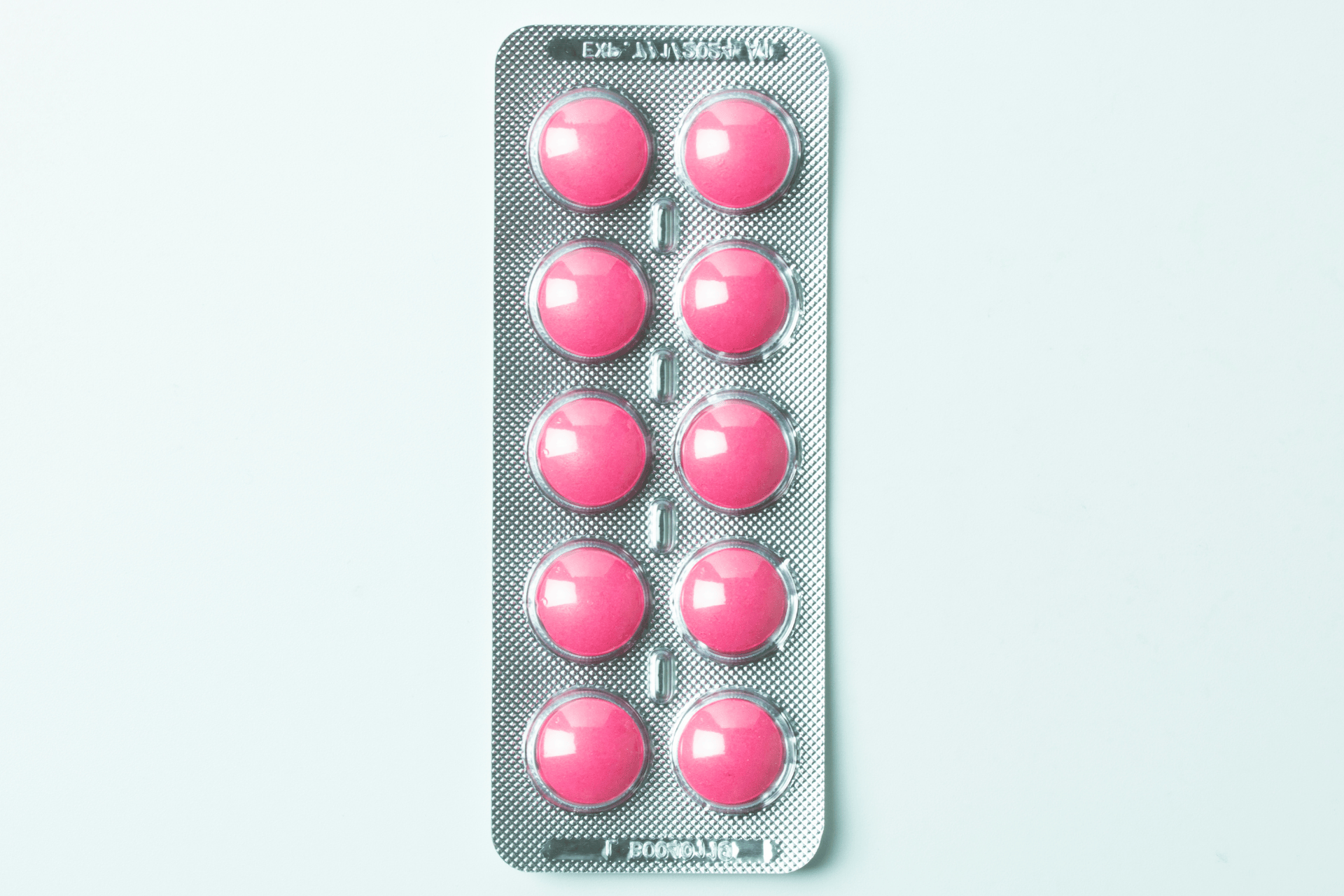Can You Take Benadryl with Gabapentin?
If you are taking gabapentin for nerve pain or seizures and wondering if it’s safe to use Benadryl for allergies or sleep, you are not alone. Many people want to know if [...]
Read More
Medically reviewed by Alan Lucks | MD, Alan Lucks MDPC Private Practice - New York on November 20th, 2025.
Both medications work as central nervous system depressants, with diphenhydramine (Benadryl) blocking histamine receptors while gabapentin affects GABA neurotransmitters, creating compounding sedation when combined.
Peak drowsiness occurs 1-3 hours after taking Benadryl and can persist for 4-6 hours, overlapping dangerously with gabapentin's sedative effects that can last 8-12 hours.
Non-sedating alternatives like loratadine (Claritin) or fexofenadine (Allegra) provide effective allergy relief without enhancing gabapentin's drowsiness, making them safer first-line options.
Warning signs of dangerous over-sedation include confusion, slurred speech, difficulty staying awake, or shallow breathing—symptoms that warrant immediate emergency care.
If both medications are medically necessary, starting with the lowest effective doses (such as 12.5mg Benadryl instead of 25mg) and avoiding alcohol completely reduces but doesn't eliminate interaction risks.
If you are taking gabapentin for nerve pain or seizures and wondering if it’s safe to use Benadryl for allergies or sleep, you are not alone. Many people want to know if these two medications can be taken together without problems. This article explains what happens when you combine Benadryl and gabapentin, the risks involved, and how to get safe advice from a trusted source like Doctronic.ai.
 What Are Benadryl and Gabapentin?
What Are Benadryl and Gabapentin?Benadryl is a common brand name for diphenhydramine. It is an antihistamine that helps reduce allergy symptoms like sneezing, a runny nose, and itching. It is also used as a sleep aid because it can cause drowsiness. Benadryl works by blocking histamine, a chemical your body releases during allergic reactions. This medication is often recommended for seasonal allergies, hay fever, and even certain types of hives. In addition to its use in allergy relief, Benadryl is sometimes employed to alleviate symptoms of motion sickness and to induce sedation before surgical procedures. However, it’s essential to use Benadryl responsibly, as overuse can lead to side effects such as dry mouth, constipation, and confusion, particularly in older adults.
Moreover, Benadryl is available in various forms, including tablets, capsules, and liquid formulations, making it accessible for different age groups and preferences. The versatility of this medication has made it a staple in many households, especially during allergy seasons. However, individuals should be cautious about mixing Benadryl with other medications or substances that also cause drowsiness, as this can lead to increased sedation and potential health risks.
Gabapentin is a prescription medication often used to treat nerve pain, seizures, and sometimes restless leg syndrome. It works by calming nerve activity in the brain and nervous system. Gabapentin can cause side effects like dizziness and sleepiness, especially when you first start taking it. This medication is particularly effective for conditions like neuropathy, which can result from diabetes or shingles, and it is frequently prescribed off-label for various types of chronic pain management. Patients taking gabapentin often report significant relief from their symptoms, allowing for improved quality of life and increased mobility.
In addition to its pain-relieving properties, gabapentin has gained attention for its potential role in managing anxiety disorders. Some studies suggest that it may help alleviate anxiety symptoms, providing a non-opioid alternative for those struggling with anxiety-related conditions. However, patients should be aware of the importance of following their healthcare provider's recommendations closely, as gabapentin can lead to withdrawal symptoms if discontinued abruptly. Regular follow-ups and open communication with a healthcare professional are crucial for anyone on gabapentin to ensure the medication is working effectively and to monitor for any adverse effects.
Both Benadryl and gabapentin can cause drowsiness and dizziness. When taken together, these effects might add up, making you feel very sleepy or less alert than usual. This can increase the risk of falls, accidents, or trouble concentrating. For example, if you plan to drive or operate machinery, combining these drugs could be dangerous. The potential for increased sedation may also affect your ability to perform daily tasks, such as work responsibilities or engaging in social activities. It’s essential to monitor how you feel when starting either medication, as individual responses can vary widely.
Doctors usually advise caution when mixing medications that cause sedation. While there is no direct harmful chemical interaction between Benadryl and gabapentin, their combined sedative effects can be strong. This is why it is important to talk to a healthcare provider before using both, especially if you have other health conditions or take more medicines. Healthcare professionals may suggest alternative treatments or adjustments to your medication regimen to minimize risks. They can also provide guidance on managing side effects and monitoring your overall health, ensuring that any potential complications are addressed promptly.
To grasp the implications of combining Benadryl and gabapentin, it's helpful to understand how each medication works. Benadryl, an antihistamine, blocks histamine receptors in the brain, which can lead to its sedative effects. Gabapentin, on the other hand, is primarily used to treat nerve pain and seizures by modulating the release of neurotransmitters. When these two medications are taken together, the central nervous system may become overly suppressed, leading to heightened sedation. This interaction is particularly concerning for older adults or those with pre-existing conditions, as they may be more susceptible to the compounded effects of these drugs.
Start with the lowest dose possible of each medicine.
Avoid activities that require full attention, like driving, until you know how the combination affects you.
Do not drink alcohol, as it can increase drowsiness and other side effects.
Watch for signs of excessive sedation such as confusion, difficulty breathing, or extreme sleepiness. If these occur, seek medical help immediately.
If you feel unusually tired, dizzy, or notice any other worrying symptoms after taking Benadryl with gabapentin, it’s important to get advice quickly. You can use telehealth services like Doctronic.ai to speak with a doctor anytime. They can review your medications and suggest safer alternatives or adjustments.
 Alternatives to Taking Benadryl with Gabapentin
Alternatives to Taking Benadryl with GabapentinIf you need allergy relief but want to avoid extra drowsiness, consider non-drowsy antihistamines like loratadine or cetirizine. These are less likely to cause sedation and may be safer to use with gabapentin. Always check with your healthcare provider before switching medications.
If you are using Benadryl as a sleep aid while on gabapentin, talk to your doctor about safer options. There may be other ways to improve sleep without increasing sedation risks, such as lifestyle changes or different medications.
Doctronic.ai offers free AI doctor visits that provide fast, reliable medical information. You can ask questions about Benadryl, gabapentin, and other medications anytime. The AI uses the latest medical research to give you clear advice that you can trust.
If you want personalized care, Doctronic also offers video visits with licensed doctors for under $40. These doctors are available 24/7 in all 50 states. They can review your medications, discuss side effects, and help you find the safest treatment plan without the wait of a traditional appointment.
Benadryl and gabapentin both cause drowsiness, which can add up when taken together.
There is no direct harmful drug interaction, but combined sedation can be risky.
Always start with low doses and avoid activities that need full alertness if prescribed by your doctor.
Non-drowsy allergy medicines may be a better choice if you take gabapentin regularly.
Use trusted telehealth services like Doctronic.ai for quick, expert advice on medication safety.
No. Both cause drowsiness and may cause breathing problems, so you may feel very sleepy or dizzy. Talk to a doctor before combining these medicines.
No, Benadryl does not reduce gabapentin’s effectiveness. However, the combined sedation can increase side effects.
Stop taking the medications, do not drive or operate machinery, and contact a healthcare provider immediately. If symptoms are severe, seek emergency care.
Yes, non-drowsy antihistamines like loratadine or cetirizine are usually safer options. Check with your doctor first.
Use telehealth services like Doctronic.ai for fast, affordable consultations with doctors who can help you manage your medications safely.
The combination significantly amplifies sedation and fall risk, making non-drowsy antihistamines the preferred choice for allergy symptoms while on gabapentin. Any concerning symptoms like excessive drowsiness or breathing changes require immediate medical attention. If you're unsure about safe alternatives or experiencing concerning symptoms, Doctronic can provide personalized guidance for your specific situation.
If you are taking gabapentin for nerve pain or seizures and wondering if it’s safe to use Benadryl for allergies or sleep, you are not alone. Many people want to know if [...]
Read More